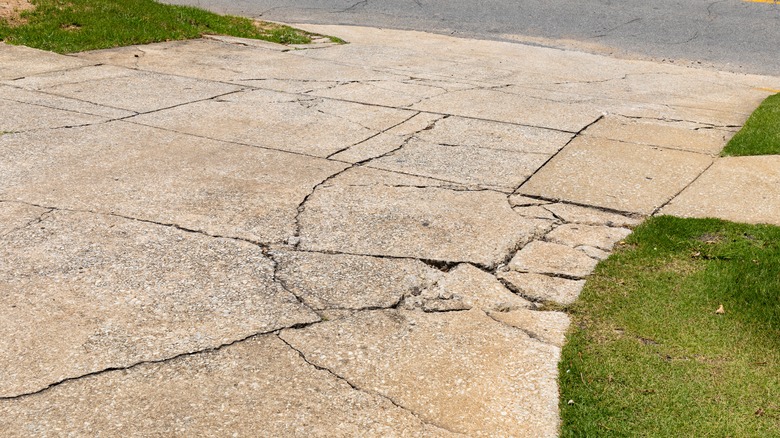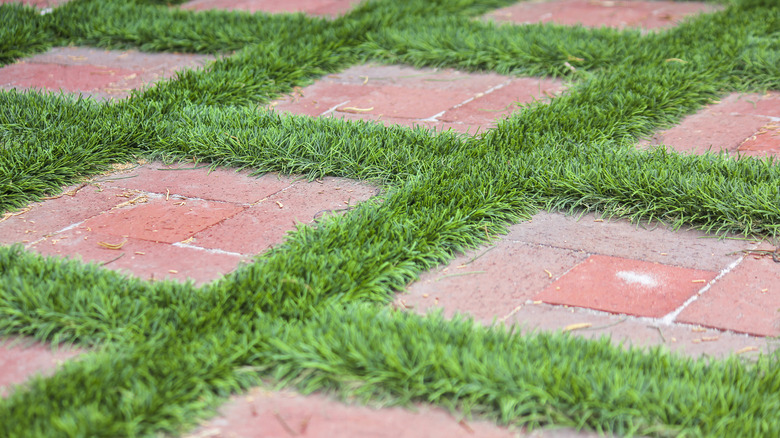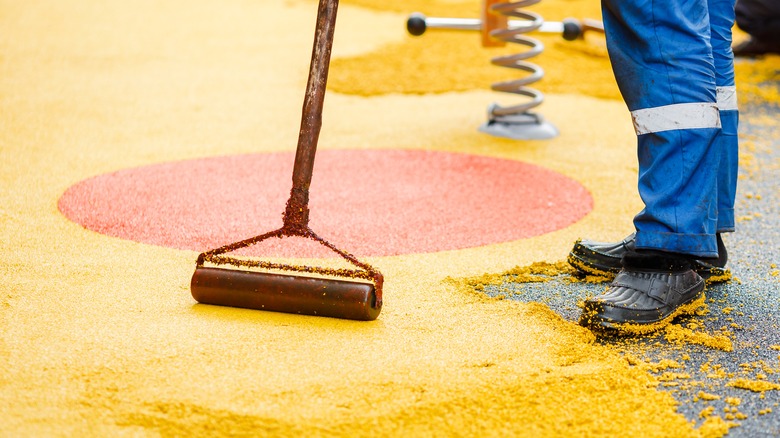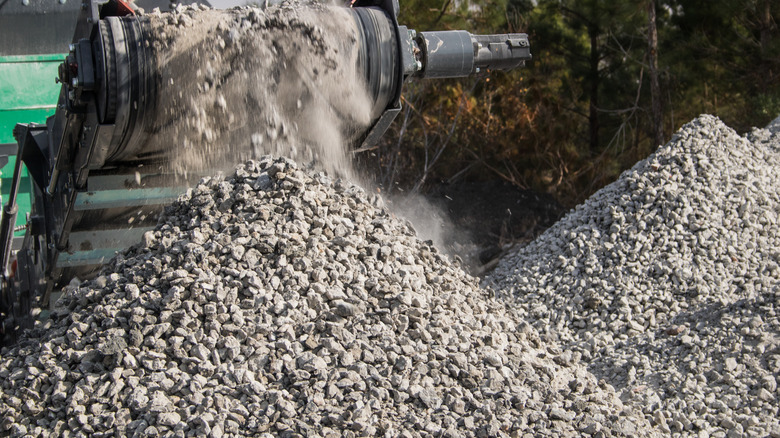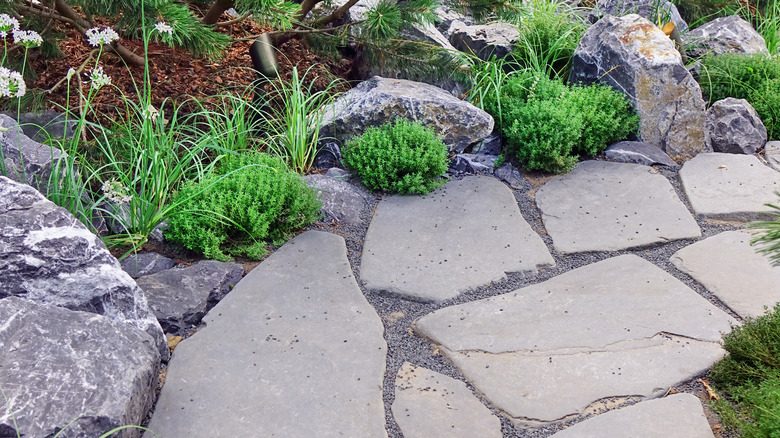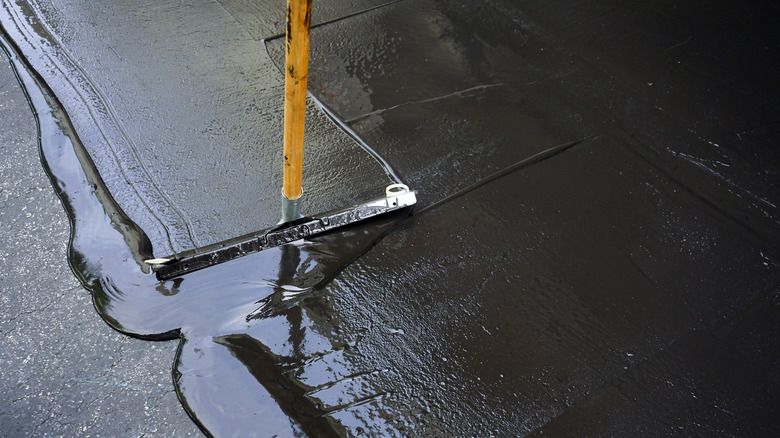Eco-Friendly Options To Repave Your Worn-Out Driveway
Over time, the concrete and asphalt that make up our driveways receive quite a beating. Freezing temperatures, erosion from rain, and chips and cracks from constant use can leave you with a surface that looks unsightly, presential a potential hazard. Hence, it's essential to maintain and repair your driveway regularly. Unfortunately, however, fixing these issues with traditional solutions can take a toll on the environment.
Asphalt is one of the most common materials used to repave driveways, but it's harmful to the atmosphere because it's made of a finite resource. The base of asphalt is petroleum, which requires drilling from below the surface to access. Concrete is also disruptive because its components require mining, which damages the natural environment. Both of these materials also come with the added issue of improper drainage. In an ideal environment, water is filtered through the grass and returned to rivers and streams relatively clean and impurities-free. However, concrete and asphalt driveways interrupt this process and contaminate the natural water supply. Luckily, there are a few alternatives that are both functional and eco-friendly.
Grass
The first option for an eco-friendly driveway is simple — incorporate grass to reduce the additional materials you need and give the water somewhere to flow where it can drain properly. This, however, doesn't mean you have to pull your car up directly onto your lawn. Instead, consider installing pavers throughout the length of your driveway that can withstand the weight of a vehicle, then allow the grass to form around them, essentially cementing them in place naturally.
This option is great if you're looking for something simple to install or planning to demo your driveway completely. It also gives you more flexibility when styling and catering the final look to your personal taste. There are plenty more colors and styles available for pavers than basic concrete. However, it requires additional maintenance and mowing, and you could run into some issues with your homeowner's association if you're living in a stricter neighborhood.
Recycled rubber
Opting for something made of rubber might not be your first thought when it comes to an eco-friendly alternative to a traditional driveway material. However, choosing a recycled option can help utilize existing waste that otherwise would have taken up landfill space. This material is frequently chosen to coat playgrounds as it provides a bit of additional cushioning on top of concrete. Still, it can also be used for driveways as a weather-resistant option for resurfacing.
The main draw of a recycled rubber driveway is its flexibility. If you live someplace where you frequently face cracks and chips due to weather conditions, you can rest assured that this material will roll with the punches instead of crumbling under pressure. It's also cost-effective — resurfacing is usually much cheaper than completely removing and replacing your existing concrete. Unfortunately, this material has a shorter lifespan than many other options, usually needing touchups after about 15 years of use.
Crushed concrete
Look to crushed concrete for a more traditional look without the same environmental impact. Standard concrete is made of new, freshly-mined material that disrupts the environment, but plenty of old components are waiting to be used. Concrete can be crushed and remixed, so if there have been recent demolitions or road repairs in your area, you might be able to find a local supplier that recycles these from damaged foundations or sidewalks.
Crushed concrete also has the added benefit of being slightly more porous than the regular variety, meaning water can flow more quickly on the surface and reach the ground below. This is the best option if you need something nearly identical to a traditional driveway. However, you still want to stay eco-friendly — not even the homeowner's association will be able to tell the difference — and with crushed concrete, you can rest assured that you made a better choice for the environment.
Natural stone pavers
Installing any paver will likely be more eco-friendly than an all-over slab of concrete because the space between the pavers allows water to permeate the ground. However, opting for a stone option over concrete can take it up a notch because you're working with a naturally-occurring material that doesn't require additional production. Flagstone and granite are standard options for this kind of driveway, but there is a wide variety of choices on the market to allow you to customize your final look.
Unfortunately, this option can be a bit more expensive than others, usually around $10 to $30 per square foot including installation. The area is excavated, a base layer of bedding is laid down and leveled, and the pavers are placed on top. After properly aligning everything, the cracks are filled with additional pebbles to create a seamless, level look. This option does require complete demolition of your existing driveway, but the finished look adds quite a bit of curb appeal.
Eco-friendly seal coat
As with just about anything environmentally-focused, the best option is working with what you already have and avoiding the additional resources and carbon emissions necessary to produce something new. If it's just beginning to show signs of damage and you think it's still salvageable, consider sealing your driveway to stop cracks from spreading and protect the surface from oil and gas. Traditional asphalt sealants are made of coal tar, contain high amounts of volatile organic compounds, and produce toxic gases. Still, there are many other options that offer the same protection with a more eco-friendly, renewable base and fewer risks.
By focusing on maintaining your existing driveway, you'll be able to save yourself money and avoid the negative environmental impact of a full replacement. After a while, once your driveway reaches the end of its life, opt for a more eco-friendly option that will stand the test of time.
